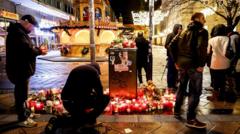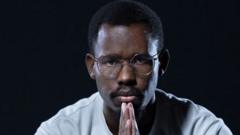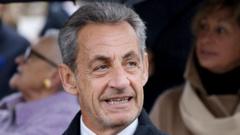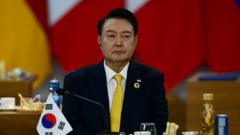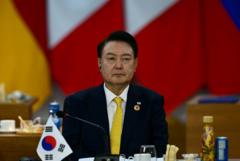Mikheil Kavelashvili, a former soccer player with far-right affiliations, has been elected president of Georgia by lawmakers from the ruling party, amid widespread opposition boycott and claims of electoral malpractice, further exacerbating the country's political strife.
Georgia's Political Crisis Deepens as Far-Right Former Soccer Star Takes Presidency

Georgia's Political Crisis Deepens as Far-Right Former Soccer Star Takes Presidency
The appointment of Mikheil Kavelashvili as president, amidst a parliamentary boycott, raises further tensions in Georgia's already turbulent political landscape.
Georgia entered a new phase of political unrest this past Saturday with the appointment of Mikheil Kavelashvili, a former soccer star and right-wing figure, as its president. Kavelashvili, at 53 years old and notable for his time as a striker for Manchester City, was elected through an electoral college process that replaced direct presidential elections seven years ago. This decision occurred after the opposition parties in Parliament staged a boycott, citing allegations of vote buying, intimidation, and violence during the recent parliamentary elections held in late October.
The conservative Georgian Dream party, which has maintained parliamentary control for over a decade, stands firmly behind Kavelashvili. Their governance has been marked by a pivot away from the European Union, steering Georgia closer to Russia and China, raising eyebrows from both international observers and domestic critics.
This electoral outcome has ignited a standoff between Kavelashvili and the current president, Salome Zourabichvili. Zourabichvili, characterized by her pro-Western stance, has signaled her determination to resist Kavelashvili's ascendance. In a social media post on X, she criticized the election's legitimacy as a "mockery of democracy," likening it to the methods employed during the Soviet era when Georgia was part of the Soviet Union. Although she has pledged to remain in office until new elections take place, the constitutional court backed the election process and dismissed her challenges.
Kavelashvili's anti-Western rhetoric has contributed to the concerns surrounding his leadership. Throughout the year, he has accused Western intelligence agencies of pushing Georgia towards conflict with Moscow, suggesting a further embrace of Russia's influence in the region, which could alter the nation’s foreign policy significantly.
As the political turmoil unfolds, the situation remains fluid, with questions lingering about the extent of Zourabichvili's power to intervene and what this shift in leadership means for Georgia's future trajectory within a geopolitical context riddled with tension and uncertainty.

